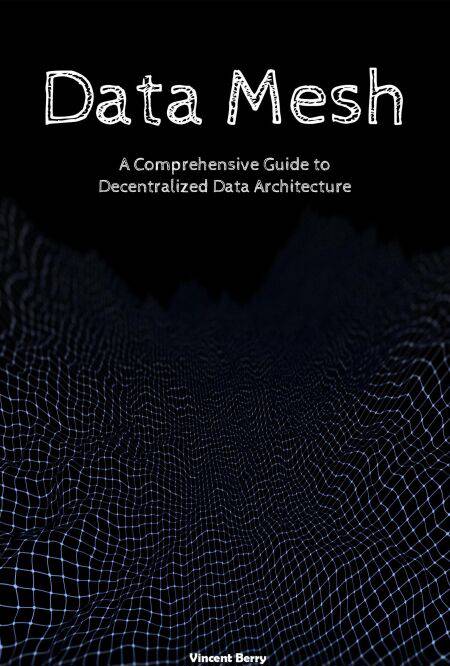
- Retrait gratuit dans votre magasin Club
- 7.000.000 titres dans notre catalogue
- Payer en toute sécurité
- Toujours un magasin près de chez vous
- Retrait gratuit dans votre magasin Club
- 7.000.000 titres dans notre catalogue
- Payer en toute sécurité
- Toujours un magasin près de chez vous
Description
In "Data Mesh: A Comprehensive Guide to Decentralized Data Architecture," readers are introduced to a transformative approach to data management that challenges conventional centralized systems. This essential guide delves into the principles and practices of Data Mesh, advocating for a paradigm shift towards a domain-oriented, decentralized data architecture. This book is meticulously designed for data architects, CTOs, data engineers, and any professionals involved in data-intensive industries who seek to overcome the limitations of traditional data management and unlock greater flexibility and scalability.
The guide starts with a thorough introduction to the core concepts of Data Mesh, including its four foundational pillars: domain-oriented decentralization of data ownership, data as a product, self-serve data infrastructure, and computational governance. Each section not only explains the theoretical aspects but also illustrates practical implementations through case studies and real-world scenarios, providing readers with a clear pathway to adopting Data Mesh in their organizations.
Further chapters are dedicated to the technical implementations of Data Mesh, detailing the technological stack and strategies required to support a scalable and efficient decentralized data architecture. The book also addresses common challenges and pitfalls, offering expert advice on navigating cultural shifts, integrating legacy systems, and maintaining data interoperability.
"Data Mesh: A Comprehensive Guide to Decentralized Data Architecture" also explores the future prospects of Data Mesh, including its role in leveraging artificial intelligence and machine learning within a decentralized framework. It outlines how Data Mesh can drive innovation, enhance data security, and improve data compliance in a rapidly evolving digital landscape.
This guide is an indispensable resource for anyone aiming to shift from a monolithic to a more distributed approach to data architecture, providing the tools and knowledge necessary to transform data management into a more dynamic, robust, and user-focused practice. Whether you are just starting your journey or looking to refine your approach, this book offers the strategic insights needed to revolutionize how your organization handles data.
Spécifications
Parties prenantes
- Auteur(s) :
- Editeur:
Contenu
- Langue:
- Anglais
Caractéristiques
- EAN:
- 9798227451804
- Date de parution :
- 02-11-24
- Format:
- Ebook
- Protection digitale:
- /
- Format numérique:
- ePub







